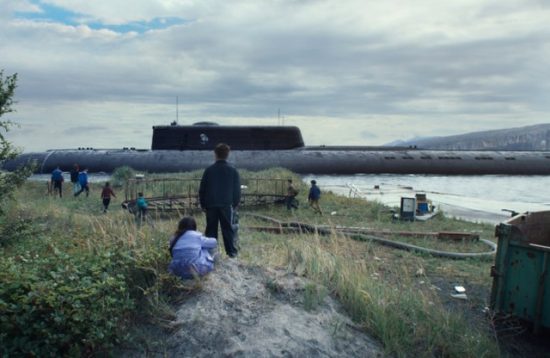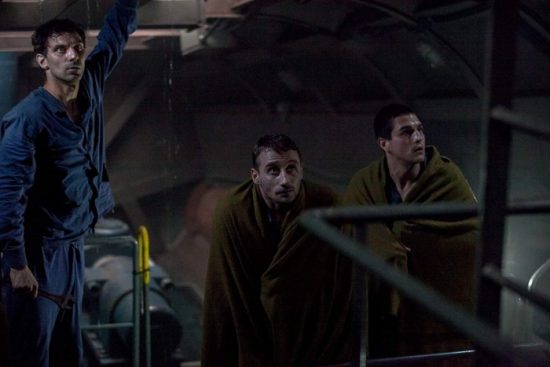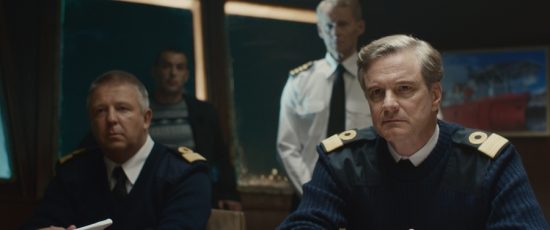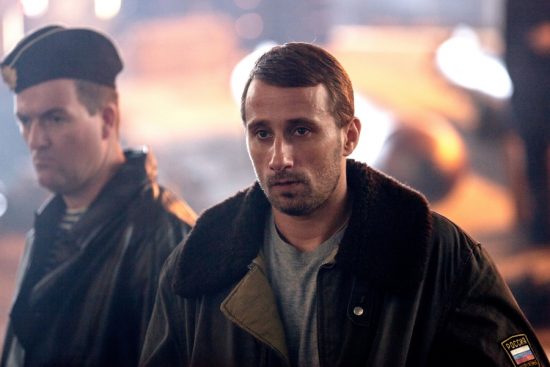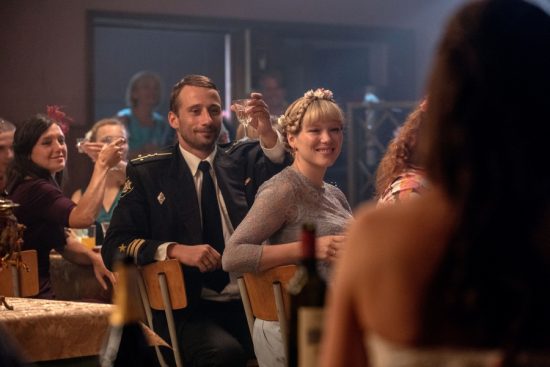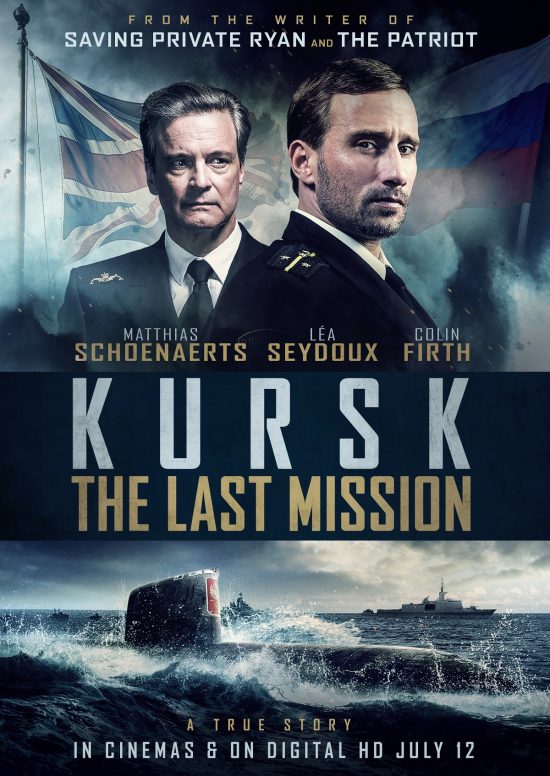Review – Kursk: The Last Mission – “Draws you into the desperate emotions of these men”
Directed by Thomas Vinterberg
Starring Matthias Schoenaerts, Léa Seydoux, Peter Simonischek, August Diehl, Colin Firth, Max Von Sydow, Bjarne Henriksen, Magnus Millang
The K-141 nuclear submarine Kursk was laid down in the early 1990s, but by the time she was fully commissioned the former Soviet Union had collapsed. She became part of the Russian navy’s Northern Fleet, a class known to worried NATO observers as the Oscar-II class, larger than her predecessors at some 154 metres, a truly massive beast, stealthy, hard to observe even with NATO’s sophisticated submarine detection equipment, and heavily armed (this class was designed to make holes in entire enemy battle groups all by herself), with a hull and conning tower reinforced so she could even surface through the Arctic ice. But by the end of the last millennium, with Russia essentially broke, much of this once-huge and impressive fleet is lying at anchor, rusting in the sea air.
For all the power Kursk and her sister ships had, we see a sadly depleted, run-down force – as the film opens we follow a group of shipmates from her crew, led by Mikhail Averin (Matthias Schoenaerts), desperately trying to raise money for the champagne for one of their fellow’s wedding reception; none of them has been paid in ages, a common occurrence during this part of Russia’s history, wages not being paid by the state, little money even for fuel for regular sailing patrols. They each barter their prized submariner’s watches with the quartermaster to get supplies for the wedding, a warm act of brotherhood for one of their own, an act which leaves the new bride in tears.
And the next day she sails into the frigid northern oceans – for the first time in years the run-down, post-Soviet Russian navy is holding a major exercise, and Kursk is joining it, tasked with launching sneak mock attacks on several of the surface vessels. Despite the lack of pay and resources this crew was still reckoned to be one of the best in the submarine fleet, and their ship a tremendous achievement of engineering and power. As we see her leave her base, watched by their families, the gargantuan scale of this ship is quite clear, and you understand the pride her crew have in sailing on such a vessel. Sadly, of course, for those of us familiar with recent history we know this will be Kursk’s final voyage. On the 12th of August, 2000, an explosion was detected beneath the waves around the exercise fleet. The worst had happened.
You may ask what mileage there is in a disaster film based on real history when we all know what the outcome is, and it is a legitimate question. I have to say it entered my mind early on, but Thomas Vinterberg crafts his film in such a way that you get to know the men and their families. We see their strong bonds at the start as they try to find supplies for their crewmate’s wedding, we see their families, we see a group of elite sailors who live and work in close quarters at sea and whose families live next to one another on shore, they are all one extended family, and it is clear they would do anything for one another. As we get to know the men on the ship and their families back home we become enmeshed in their lives – I found myself wanting, against the odds, against real history, for some of them to make it, even though I know that all of her crew perished down there, in the deep, cold northern waters, far from the light. But Vinterberg made me want that to happen, his Kursk really does pull you in emotionally to this desperate struggle for survival.
The explosion destroys the forward compartments of the ship – it is generally believed that a badly-made torpedo leaked the unstable hydrogen peroxide fuel (similar to that used in some rockets), causing an explosion, which in turn lead to a bigger explosion as it set off some of the other torpedoes. You can imagine the devastation this wreaks on the stricken ship. The crewmen we follow survive only because they were in the rear section. They are now stuck on the bottom of the sea in the last few sealed compartments, water leaking in, air thinning, waiting, hoping, praying for rescue. But the cutbacks in the Russian fleet have also affected their search and rescue teams – the British Royal Navy (in the shape of Colin Firth’s Commodore David Russell) and Norwegian navies monitor the situation and offer their own far better technical resources to rescue the men they think may be trapped aft, but a proud and suspicious Russia refuses the offers of help, until it is too late.
We’ll never know for sure now if those twenty-three men surviving in the aft compartments could have been rescued if Russia had accepted that help more quickly. One officer there made a list of the surviving men, so we know they were there for some time after the explosion, hoping for a rescue that came far too late (Firth has his British officer down perfectly, the obvious despair and resignation mixed with that classic stoic and professional in public persona we expect of an RN officer). The rescue attempts by the Russians, the help offered by the British and Norwegians, the cutting back and forth from the slowly filling compartments of survivors to their frantic families on land, demanding information and being given little by the authorities, all builds to a tremendous if tragic emotional climax. This is all handled in a very realistic, down-to-earth manner, a million miles from the action of the likes of Hunt For Red October, in many ways it has the feeling of one of those classic WWII submarine films, when all the men can do is wait in their ship, deep below the surface and hope.
Yes, we know the outcome here – this event only happened nineteen years ago, we all saw it on the news, we all heard of the Royal Navy’s offer of help, the standard forgetting of enemies when in trouble at sea, because then all sailors are fellow sailors and the code is always to help, and the wait to find out that it was all too late. And yet Vinterberg’s film draws you into the desperate emotions of these men and their families so effectively you find yourself longing for a Hollywood happy ending that you know never happened and cannot be, but he ensures these men are not just some stereotypes, he gives them depth, families, makes us emote with them until we feel their struggle. And he gives them honour, heroism and professionalism as they face their end together.
Kursk: the Last Mission is released by Signature Entertainment in cinemas and on Digital HD from July 12th.

